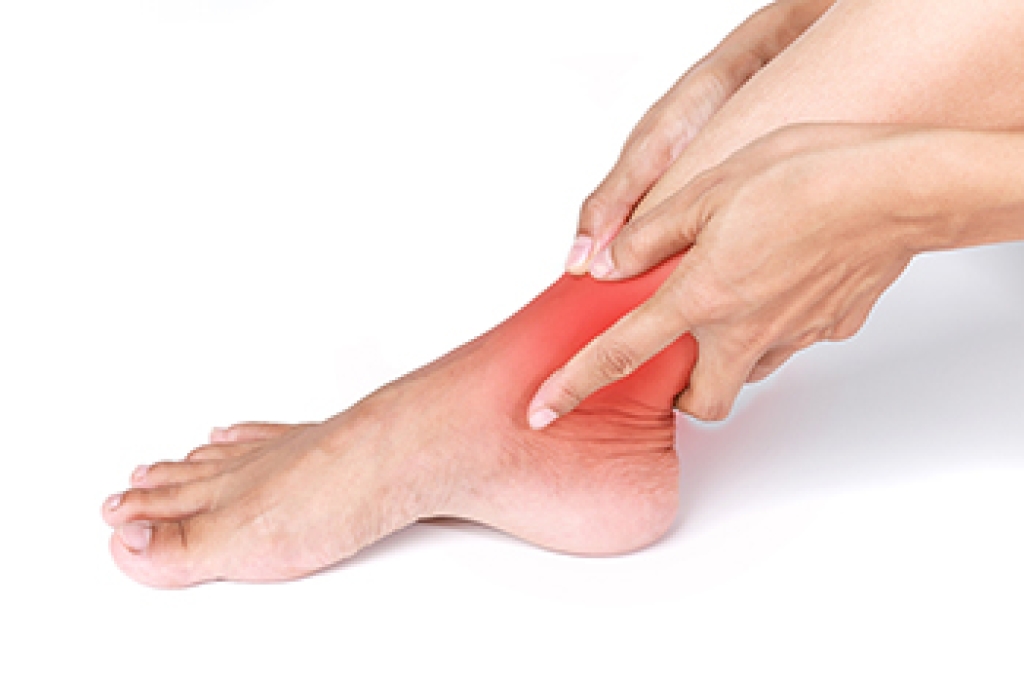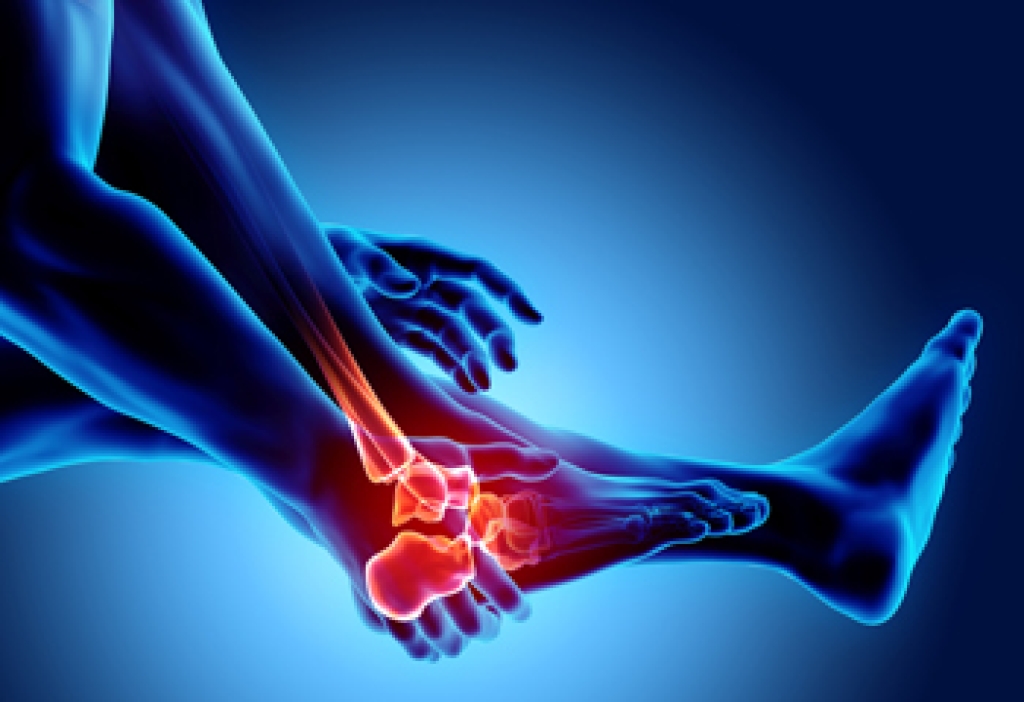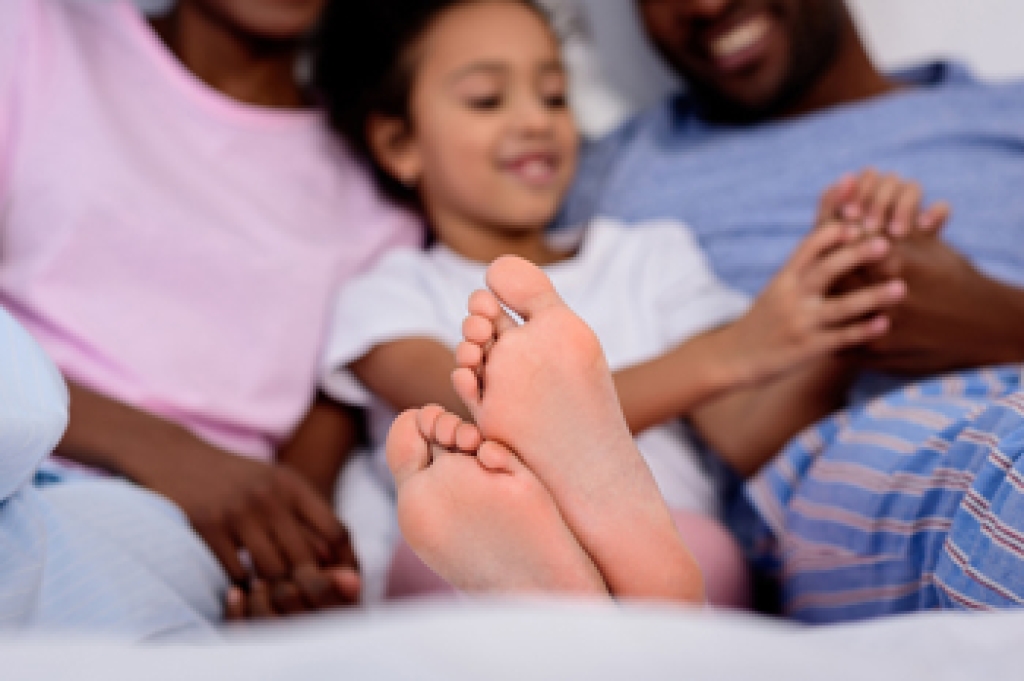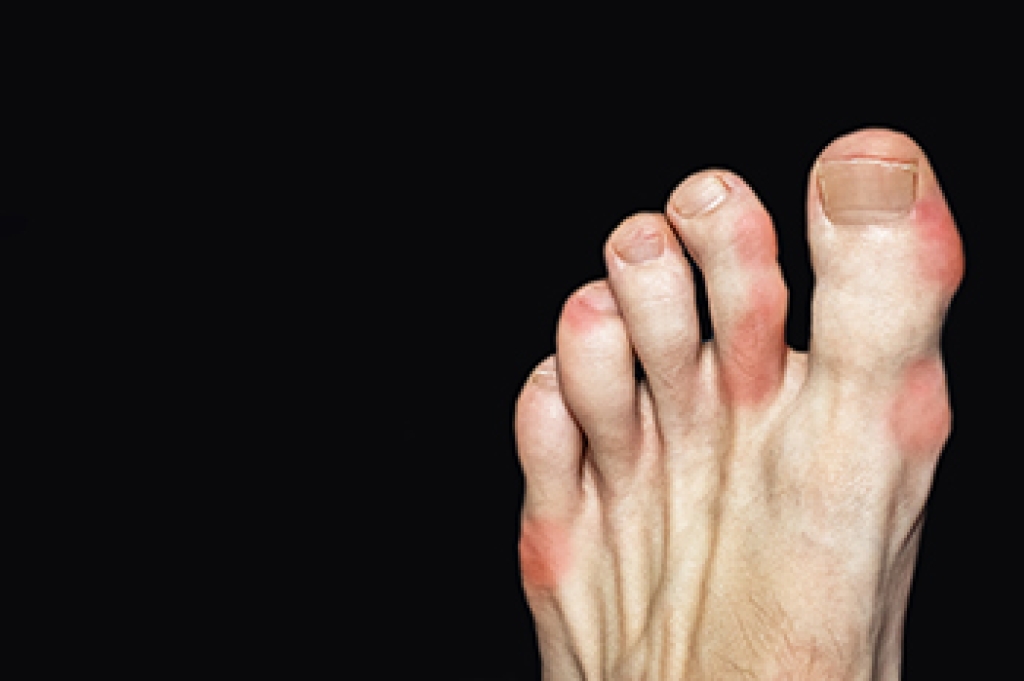 The tarsal tunnel is a narrow space on the inside of the ankle that contains arteries, veins, tendons, and nerves. Tarsal tunnel syndrome occurs when one of these nerves, the posterior tibial nerve, is squeezed or compressed. This can occur due to an abnormal structure in the area such as a cyst or bone spur, an injury that causes inflammation such as an ankle sprain, or diseases like arthritis and diabetes. Symptoms of tarsal tunnel syndrome are an electric shock-like tingling or burning sensation on the inside of the ankle or bottom of the foot, as well as numbness and shooting pain. Treatments for this condition include resting and icing the affected foot, taking oral medications to reduce pain and inflammation, bracing or immobilizing the foot, and wearing specialized shoes or orthotics devices. Left untreated, tarsal tunnel syndrome may cause permanent nerve damage. If you have symptoms of tarsal tunnel syndrome it is recommended that you see a chiropodist for treatment.
The tarsal tunnel is a narrow space on the inside of the ankle that contains arteries, veins, tendons, and nerves. Tarsal tunnel syndrome occurs when one of these nerves, the posterior tibial nerve, is squeezed or compressed. This can occur due to an abnormal structure in the area such as a cyst or bone spur, an injury that causes inflammation such as an ankle sprain, or diseases like arthritis and diabetes. Symptoms of tarsal tunnel syndrome are an electric shock-like tingling or burning sensation on the inside of the ankle or bottom of the foot, as well as numbness and shooting pain. Treatments for this condition include resting and icing the affected foot, taking oral medications to reduce pain and inflammation, bracing or immobilizing the foot, and wearing specialized shoes or orthotics devices. Left untreated, tarsal tunnel syndrome may cause permanent nerve damage. If you have symptoms of tarsal tunnel syndrome it is recommended that you see a chiropodist for treatment.
Tarsal tunnel syndrome can cause pain and progress over time. If you are experiencing any symptoms of tarsal tunnel syndrome, please consult with Emily Yu, B.Sc from Uptown Foot Care Clinic. Our specialist will assess your condition and provide you with quality foot and ankle treatment.
What Is Tarsal Tunnel Syndrome?
Tarsal tunnel syndrome is a condition in which the posterior tibial nerve, which is located within a structure called the tarsal tunnel on the inside of the ankle, is squeezed. Compression of the posterior tibial nerve can be caused by injuries, such as ankle sprains, systemic diseases like diabetes or arthritis, strain on the tarsal tunnel due to flat feet, or an enlarged structure like a cyst squeezing the nerve.
Symptoms
Symptoms of tarsal tunnel syndrome can appear suddenly and are generally worsened by physical activity.
Common symptoms include:
- Tingling, burning, or electrical shock sensation on the inside of the ankle or bottom of the foot
- Numbness
- Shooting pain
Diagnosis
Tarsal tunnel syndrome is diagnosed through physical examination. If initial treatment is ineffective, imaging or nerve studies may also be necessary.
Treatment
Nonsurgical treatments for tarsal tunnel syndrome include resting and icing the foot, bracing or immobilizing the foot, wearing an orthotic device, modifying your footwear, and taking medications to relieve pain. Surgery may be needed if nonsurgical treatments are ineffective.
If you have any questions please feel free to contact our office located in Toronto, ON .



 Gout
Gout 